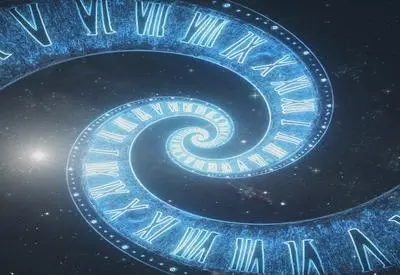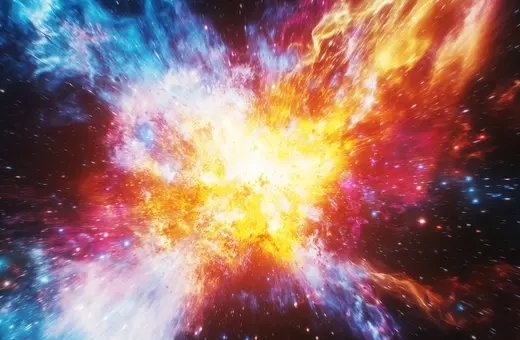According to the idea of the block universe, the passage of time is an illusion. The past, present and future all coexist, along with space, in one big frozen block in which nothing ever happens. But the emergence of life and the existence of genuine novelty in our corner of the cosmos contradict this picture. The passage of time is not an illusion, it’s a fundamental aspect of reality, something that existed before even The Big Bang. By studying the nature of novelty, the life sciences could help us prove time fundamentalism, argues Lee Cronin.
I think that time is the most misunderstood aspect of reality. This is because physicists have concluded time is emergent and the universe somehow exists in a timeless state. According to this view, time is a dimension to be travelled in backwards and forwards, but we have no evidence this is true. We have only experienced time travel in one direction, from the past to the future. We cannot go back in time. Whilst we appear to be able to imagine being frozen in time, or going back in the past, the thing is, we need time to go forward and do any of these things. Time is the resource that allows things to happen.
 SUGGESTED READING
Time is the increase of order, not disorder
By Julian Barbour
SUGGESTED READING
Time is the increase of order, not disorder
By Julian Barbour
The problem with a universe in which time is frozen is that it requires four assumptions to be made. The first is that the origin of the universe is required to be almost perfectly ordered at the Big Bang. The second is that the second law of thermodynamics must emerge from this order at the beginning. The third is that time must be an emergent property. Finally, causality itself must be emergent. We have no reason to believe any of these assumptions are correct, but all four of these assumptions can be replaced with just one, more intuitive claim: that time is fundamental. Fundamental time removes the need for order at the Big Bang, it removes the need for an explicit second law of thermodynamics or for causality itself to emerge. Generally speaking, a theory is stronger the fewer assumptions it needs to make. That is the great advantage of time fundamentalism. Moreover, seeing time as fundamental has the advantage that it tallies with our own experience.
Where does my intuition for time and space come from? I think I remember being born and experiencing the transition from time into space. This does seem ludicrous because no one can remember back that far. When I was younger, I kept having a reoccurring dream. I was trapped in a place between many black bricks. I was squeezed into nothing between these black bricks, this nothingness– a total void. I felt trapped, unable to breathe, in total darkness, totally constrained, unable to move anything, yet aware. Then suddenly, I remember being pushed to the light. I could move, there was space, I had found the world in space, but still, I do remember the before – the awareness of nothing in nothing.
___
If it is space that is emergent, then the origin of the universe – the Big Bang – is merely the point in time where space emerged from time
___





















Join the conversation